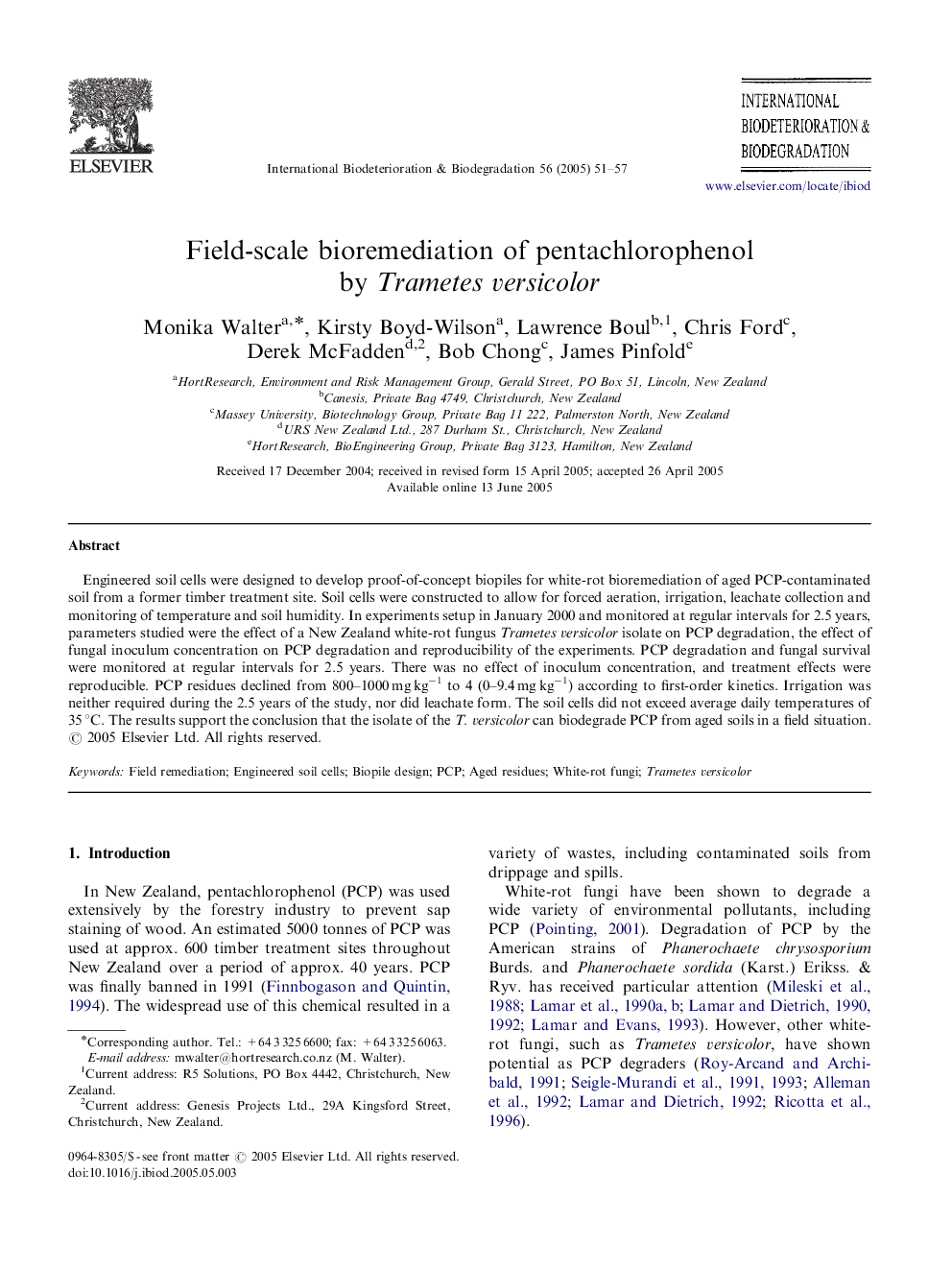| Article ID | Journal | Published Year | Pages | File Type |
|---|---|---|---|---|
| 9442436 | International Biodeterioration & Biodegradation | 2005 | 7 Pages |
Abstract
Engineered soil cells were designed to develop proof-of-concept biopiles for white-rot bioremediation of aged PCP-contaminated soil from a former timber treatment site. Soil cells were constructed to allow for forced aeration, irrigation, leachate collection and monitoring of temperature and soil humidity. In experiments setup in January 2000 and monitored at regular intervals for 2.5 years, parameters studied were the effect of a New Zealand white-rot fungus Trametes versicolor isolate on PCP degradation, the effect of fungal inoculum concentration on PCP degradation and reproducibility of the experiments. PCP degradation and fungal survival were monitored at regular intervals for 2.5 years. There was no effect of inoculum concentration, and treatment effects were reproducible. PCP residues declined from 800-1000 mg kgâ1 to 4 (0-9.4 mg kgâ1) according to first-order kinetics. Irrigation was neither required during the 2.5 years of the study, nor did leachate form. The soil cells did not exceed average daily temperatures of 35 °C. The results support the conclusion that the isolate of the T. versicolor can biodegrade PCP from aged soils in a field situation.
Related Topics
Life Sciences
Environmental Science
Environmental Science (General)
Authors
Monika Walter, Kirsty Boyd-Wilson, Lawrence Boul, Chris Ford, Derek McFadden, Bob Chong, James Pinfold,
